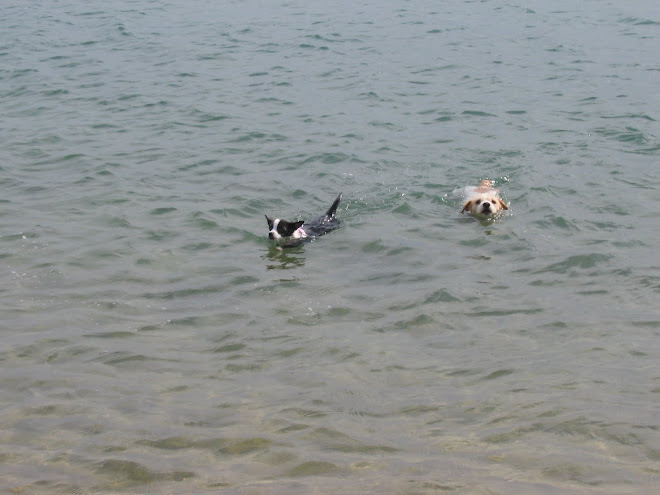My first question would have to be "why would one not want to treat a dog as a dog"? Even my smallest Chihuahua mix Jack is proud to be "dog", dogs love to be dogs they are not fulfilled being surrogate humans! You should see little Jack running the countryside covered in mud with a feather in his mouth - his entire body language says “proud dog” - he would not want to be “carried around” and “pampered”...he is a dog!
Dogs are pack animals it's in their DNA, so why not be their leader this is nature's way? Being the Pack Leader does not mean we cannot have our dogs as companions or have to change everything - actually it is a very straight forward philosophy and I get to share affection - my pack get loads of affection, but it comes as a reward for being my followers and this makes it even more special to my dogs - they have earned their place in the pack, this is the ultimate reward for any dog!
So what is it about the pack leader way that you do not like or want to follow? What is your dog if not a dog?
Brining a powerful breed such as a Rottweiller into a family ....pack....without following exercise and discipline is a risky method, if the dog is naturally lower ranked "happy go lucky" then with training alone you may have a great family dog BUT if the dog is a social climber then behaviour may become a problem which later requires rehab!
Anyone can become their dog's Pack Leader - anytime - any dog age - this is because dogs live in the now and always prefer to live in the most natural of environments which is a pack.
I know if I was going to bring in a puppy to this pack I would follow Cesar's ways in his book "A Member of the Family" - a friend of mine Greet, in the Netherlands, has just followed this book to bring a Chihuahua pup at 7 wks old into her pack of 14 dogs with great success.
So the only other advice I could give you would be to have one dog as the higher ranked member of the pack - the "alpha", though please note this may well inspire fighting between them as the pup matures! I would also protect the smaller dog from puppy play in case of injury from a heavier boned puppy.
Train the pup from day one with other dogs, socialization is key in as many different environments/contexts as you possibly can. Try to avoid any bad habits developing by having at least some rules from day one. Walking both dogs together would help to create a bond, as would feeding them near each other but not allowing them to go to each other's bowls and balancing your attention between both dogs!
If you can manage to follow a little dog psychology it may well help you raise your pup without him suffering fears and obsessions - don’t reinforce fearful instinct/mind with affection, redirect him if he is becoming fixated on something - prevention is far better than cure!
If you are not following any discipline then you are likely to get more primal behaviour - behaviour which can carry risks and become unwanted later when it is no longer cute! If your current dog is a balanced dog then the positive power of the pack may well transfer to the puppy, if not then behaviour problems can double!
Not everyone wants to be or can be the pack leader , there is always room for compromise but personally I just love the calm energy of my pack now, you can see the contented dogs at walk, rest and play - it's a dog's life. If I cannot convince you to see you dogs as dogs, then all I can do is wish you luck with your new puppy and hope all goes well for you and that you go on to control your Rottie pup through obedience training.
I love to be my pack's Dog Whisperer! I still humanize my dogs for fun between humans only, they are all still my "babies" - my family, but never directly with/to them or in any emotional interaction as I respect their right to be my pack ... my dogs first.
Balance means I can be a dog lover and a Pack Leader.





No comments:
Post a Comment